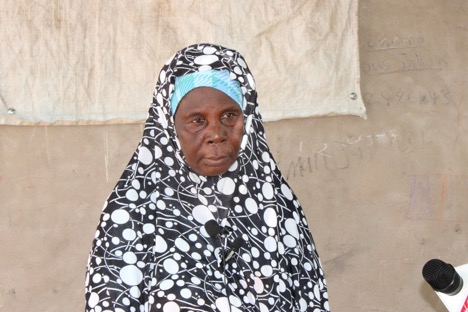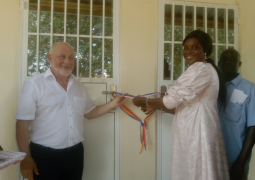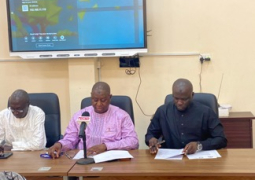
They made this assertion during a forum organsied by The Gambia Committee on Traditional Practices Affecting the Health of Women and Children (Gamcotrap) as the NGO renew its advocacy on FGM law across the country.
Kanneh Sidibeh, ex-circumciser at Moriya in Niamina East, shared that she has dropped her knife since and this was after attending a training organsied the Gamcotrap.
She promised that she will never practice the act again, saying she will not train anyone and she will not encourage anyone to practice it in view of the fact that it was banned in the country and everybody shall respect that ban.
She made refence to the move taken by the former Gambian dictator, Yahya Jammeh, when he outlawed Female Genital Mutilation (FGM) in the country.
Marry Ceesay, FGM survivor in Bansang, shared some of the life-long consequences most of the survivors continue to experience like, chronic pain; recurring infections; problems with urination, menstruation and childbirth; pain during sexual intercourse and trauma.
She disclosed that the negative side of this practice far outweigh the advantages and called on all to observe the ban.
Momodou Keita, Gamcotrap coordinator in the Central River Region (CRR), recalled that the first FGM convictions came eight years after the ban was introduced in 2023, when three women were found guilty of cutting eight infant girls.
This, he added, sparked a public debate about the practice for the first time in Gambia.
He thus urged all to do more research of whatever they learned from their respective schools before embarking on any augment, saying the augment surrounding the FGM is because of lack of knowledge about the harmful effects of the practice on girl-child.
He thanked the ex-circumcisers in CRR for their commitment to observe the ban placed on FGM, while calling on the relevant authorities to come and support the ex-circumcisers as they all have families to take care of.
Aja Mamanding Baldeh, women district chairperson in CRR south, assured that all the circumcisers in her district will continue to observe the ban of FGM for the well-being of women and young girls.
Also speaking, Pierre Bah, Chief of Niani, lauded the country’s lawmakers for their efforts to maintain the ban on FGM in the country.
“Female Genital Mutilation (FGM) has been outlawed in The Gambia since 2015, but the deep-rooted cultural practice remains widespread in the west African nation,” he said.
Banned in over 70 countries worldwide, FGM remains widespread in some African nations and diaspora communities. An estimated 144 million women and girls on the continent have been subjected to the practice, which usually involves the partial or total removal of the external genitalia.
In Gambia, many people continue to take girls to be cut despite the ban, which authorities have not enforced seriously, anti-FGM campaigners say.




